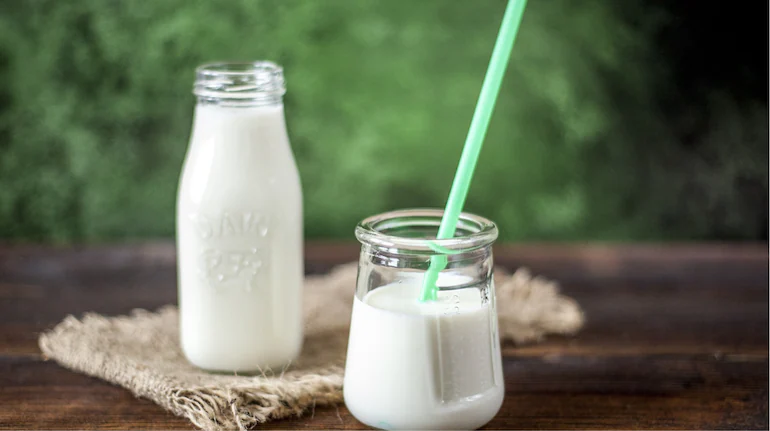A child’s connection to milk begins right from birth. In fact, pregnant women are often encouraged to drink milk to pass on its benefits to the developing baby. As your baby grows into a toddler or pre-teen, you may start to question which type of milk best meets their nutritional needs. With so many options available, it can be challenging to determine which one is the healthiest and safest for your child. In this guide, we’ll explain the different types of milk and help you choose the most suitable one for your child.
Type 1: Raw Milk
For centuries, raw cow’s milk has been a staple in Indian households, with many believing it to be the most nutritious option. Raw milk refers to milk delivered straight from a local dairy without undergoing any processing or pasteurisation.
There are two categories of raw milk – organic and inorganic. Organic raw milk comes from cows that are fed pesticide-free, natural fodder, while inorganic raw milk is from cows that may be given adulterated fodder or injected with hormones to increase milk production.
Why Raw Milk Can Be Risky
Although raw milk may seem healthier due to its natural state, it’s unpasteurised, which means it can contain harmful bacteria. Pathogens like Brucella, E. coli, Listeria, Salmonella, and others found in raw milk can cause diarrhoea, vomiting, and even serious illnesses such as haemolytic uremic syndrome.
Who Should Avoid Raw Milk?
Pregnant women, infants, young children, the elderly, and those with weakened immune systems (such as cancer or organ transplant patients) should avoid raw milk, as they are more vulnerable to its harmful effects.
Type 2: Packet Milk
Packet or pouch milk is one of the most common types in urban India. It is pasteurised and homogenised, making it safer for consumption compared to raw milk.
What is Pasteurisation?
Pasteurisation involves heating milk at high temperatures to kill harmful germs. Packet milk goes through this process before reaching consumers.
Does Pasteurisation Affect Nutrients?
The key nutrients in milk remain intact after pasteurisation. Moreover, the process effectively kills harmful bacteria, making the benefits of pasteurisation far greater than any downsides.
Is Packet Milk Completely Safe?
While pasteurised milk is safer, it’s not necessarily organic. The milk may come from cows fed with adulterated fodder or given hormones, which pasteurisation cannot fix. Therefore, choosing certified organic milk is preferable.
Another issue with packet milk is the plastic packaging. Research from Harvard T.H. Chan School of Public Health in 2015 revealed that BPA (bisphenol A) in plastic can disrupt hormones, leading to health problems. Exposure to sunlight can cause BPA to leach into the milk, contaminating it.
Type 3: Tetra Pack Milk
Tetra pack milk has gained popularity in India in recent years. This milk is processed using either UHT (ultra-high temperature) or HTST (high-temperature short time), where it is briefly heated to a high temperature, rapidly cooled, and then sealed in protective tetra packs. These packs offer six layers of protection, making the milk more durable and long-lasting.
Tetra pack milk is considered one of the safest options, though it’s not immune to concerns about adulterated cattle feed or artificial hormones.
While raw milk may seem appealing, its lack of pasteurisation poses significant health risks. To ensure your child is protected from harmful bacteria, it’s best to opt for pasteurised milk, especially tetra pack milk, which offers the highest safety standards.







